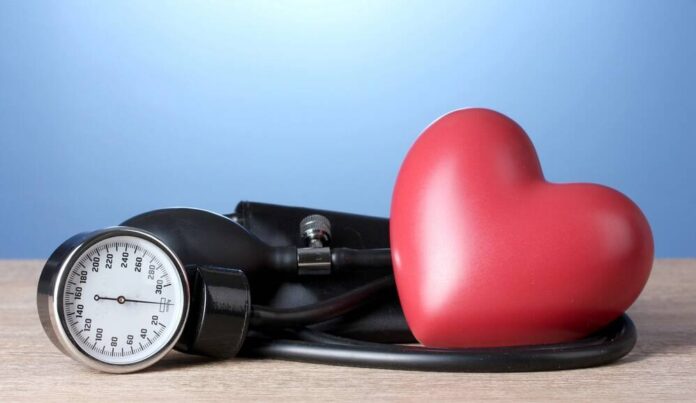
High blood pressure, or hypertension, is a significant risk factor for a variety of life-threatening conditions like heart failure, heart arrhythmias, kidney disease, and other cardiovascular diseases.
Many lifestyle and nutrition choices, as well as supplements, can help regulate blood pressure. Let’s explore them. But first, what is blood pressure?
What is blood pressure, and why is having it high so dangerous?
Blood pressure is the force with which blood pumps against the walls of the arteries as it is pumped through the body by the heart. It’s not something you would feel, so it’s a silent disease that has serious long-term consequences, including stroke, heart failure, heart attack, kidney disease or failure, vision loss, sexual dysfunction, chest pain (angina), or pain in legs or arms because of peripheral artery disease.
Before talking about lifestyle, nutrition, and supplements you can consider, always check with your healthcare provider, especially if you are already being prescribed medication for hypertension. You may need guidance on the proper dose as your blood pressure improves naturally.
How is blood pressure measured?
When a blood pressure measurement is taken, the results are presented as two numbers separated by a slash, such as 120/80. The first number is the pressure in the arteries when the heart contracts and pumps blood out to the body, or the systolic blood pressure. The second number is the pressure in the arteries when the heart is relaxed and filling with blood between beats, or the diastolic blood pressure.
Below 120 and 80 is considered normal blood pressure, 120-129 and below 80 is elevated, 130-139 and 80-89 are regarded as hypertensive stage 1, and 140-149 and 90 or higher are hypertensive stage 2.
You can measure your blood pressure at a pharmacy or a healthcare professional's office. A home blood pressure cuff is easy to use if you want to monitor it between visits.
Lifestyle tips for managing hypertension
- Maintain a healthy weight. Aim for a waist circumference under 35 inches for women and 40 inches for men.
- Exercise regularly by walking, swimming, or dancing.
- Manage stress by meditating, doing yoga, or speaking to a mental health professional.
- Sleep at least seven quality hours a night.
- Quit smoking. Smoking damages the blood vessels and makes medications less effective.
Nutrition for lowering high blood pressure
- Limit alcohol. Alcohol has been shown to raise blood pressure.
- Eat a variety of fruits and vegetables every day. These foods are rich in minerals like magnesium and potassium, which help with the signals sent from your brain to your heart. Fruits like bananas, melons, oranges, and vegetables like leafy greens, potatoes, and tomatoes are great sources of minerals.
- Eat magnesium-rich foods; they help the blood vessel walls relax. Incorporate more nuts, seeds, whole grains, leafy greens, and beans into your diet.
- Eat lean proteins like fish, chicken, and grass-fed beef.
- Focus on fiber; soluble fiber from foods like oats, beans, lentils, and split peas can help lower blood pressure.
- Choose healthy fats like avocado and olive oil or from nuts and seeds, and avoid seed oils like canola, which can be inflammatory and affect arteries by laying the path for plaque formation.
- Keep hydrated. Your blood needs to be fluid so your heart doesn’t have to work as hard to pump it through your veins.
- Limit processed foods high in seed oils and added sugar.
Supplements can be helpful for blood pressure
Many supplements can help maintain blood pressure. Here are some supported studies.
Studies have shown magnesium supplementation may lower blood pressure, breaking the cycle between preclinical conditions, type 2 diabetes, and cardiovascular diseases.
Numerous studies have documented the cardiovascular benefits of aged garlic extract (AGE). A recent study showed AGE significantly reduced blood pressure levels compared to a placebo. [Editors Note: Wakunaga offers aged garlic extract supplements. You can learn more on their website.]
CoQ10 is an essential compound with potential benefits for heart health, brain function, and other conditions. Studies show that CoQ10 supplementation significantly reduces systolic blood pressure (SBP) in patients with cardiometabolic diseases.
Studies have shown that black seed oil, which contains the active ingredient thymoquinone, significantly decreased blood pressure in all patients 48 hours after initial treatment.
Bottom Line
Blood pressure is a significant health marker. Regularly checking your blood pressure numbers and making good lifestyle, nutrition, and supplement choices can ensure you maintain a healthy BP level and a strong heart– for life!




